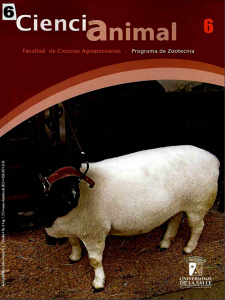Abstract
Agricultural activities have contributed to the global climate change processes with the emissions of greenhouse gases (GHG), such as methane and nitrous oxide, as well as the deforestation processes. It is estimated that the GHG indexes contributed by livestock could increase over the next twenty years, due to the increase in the number of animals in developing countries, when it is expected to reduce their emission by 50%. With the changes in variables such as temperature and distribution of rainfall patterns that will affect food availability or distribution of disease vectors, the specific solution through applied research processes becomes important. Organic livestock systems that promote nutrient cycles in the soil, particularly carbon sequestration, the biological control processes, the incorporation of agroforestry systems and the animal welfare criteria are part of productive management processes and are environmentally and socially responsible. The complex interactions between its elements have effects on the biodegradation of GHG, which contribute to climate change mitigation, and therefore they should be modeled and calculated.Downloads
Download data is not yet available.



